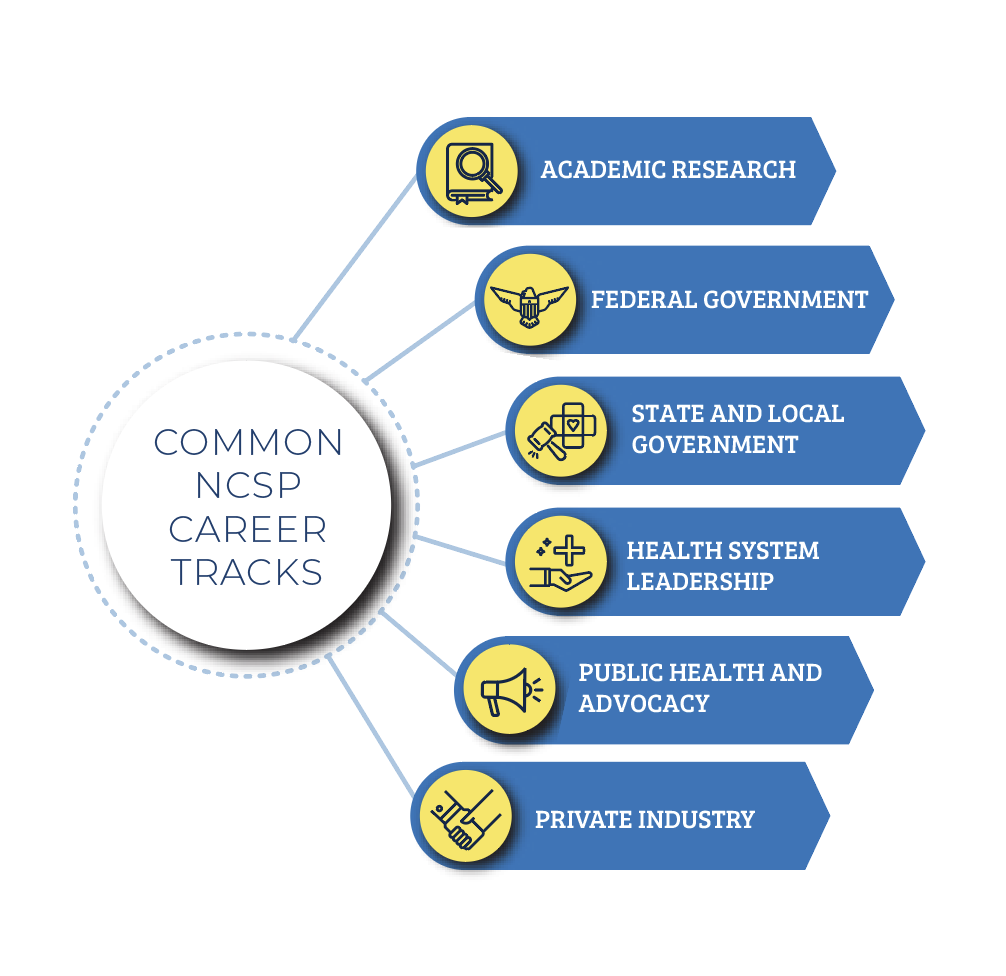Curriculum
Scholars participate in a robust, interprofessional core curriculum that is tailored to their specific training needs. Scholars acquire and hone a diverse set of skills in:
- Organizational and social change
- Applied translation research methodology
- Community engagement
- Program development and evaluation
- Team management
- Communication
- Implementation science
- Innovation
- Policy analysis
The curriculum also emphasizes principles and methods of social and behavioral science applied to:
- Health services
- Intervention design
- Measuring quality of care
- Health policy
- Assessment of community engagement
- Survey design
- Qualitative and quantitative data
- Biostatistics
- Scientific writing
Scholars also have an opportunity to matriculate in a master’s degree program. For a more robust listing of specific curricula, please visit the individual program site websites.
Scholarship
Developing skills and expertise to conduct creative, high-quality health services and policy research, including both quantitative and qualitative work, is a central component of this two-year training program. Through mentored research, Scholars work closely with partners tackling our most pressing health and healthcare challenges, leading work at the community, state, national, and, in some cases, global level.
Scholars are trained to conduct timely research that addresses real-world, highly relevant problems, providing actionable information that can influence positive change. Throughout the training experience, mentorship is provided for Scholars by teams that include program faculty, other university faculty, and engaged partners from health systems, government, and community organizations.
Leadership
Nurse and physician Scholars learn concepts of leadership and teamwork and have the opportunity to apply them in the context of community-partnered efforts, government, and complex health and research organizations. The curriculum draws on models and methods from elite leadership training in health care, business, and public administration. Off-site internships with health systems leaders and policymakers at the federal, state, and local level are also available. Many Scholar projects are embedded in real-world organizations, allowing scholars to learn from leaders of governmental agencies, private health systems, and community-based organizations.
Clinical Work
Ongoing clinical work helps Scholars maintain essential skills and relevance. Scholars' clinical efforts are balanced with research and leadership-focused education so that no more than 20% of time is spent in clinical activities, which permits sufficient educational time for intensive learning in this two-year program.
Partners
A consortium of community and academic partners comes together to offer this important training program, including local public health institutions, grassroots community organizations, and everything in-between. Our consortium not only contributes guidance and resources to the program, but also works directly with Scholars on identifying projects and partners for their work. Program oversight is provided by a National Program Board, consisting of the deans from each site’s schools of medicine and nursing, local partners, and national leaders who both advise and advance the program while supporting the careers and aspirations of the Scholars.
Career Trajectories
Our Scholars go on to effect change in a wide range of healthcare-related fields. Below are some common career paths Scholars pursue upon completion of the fellowship.

NCSP Annual Meeting
Each year NCSP Scholars from all of the training sites come together to share their research and to network with the program’s many stakeholders. In attendance will be first and second-year NCSP Scholars, NCSP and Robert Wood Johnson Foundation (RWJF) Clinical Scholars alumni, faculty and staff from the NCSP training sites, NCSP National Program Board members, community partners, Clinical Scholars Program Alumni Association board members, invited speakers, and honored guests.
In addition to plenary presentations by current NCSP Scholars, former RWJF Clinical Scholars, and esteemed guests, there will also be keynote speakers and panels.
The Annual Meeting is a critical step in fostering the development of clinicians as change agents driving policy-relevant research and partnerships to improve health and health care for all populations.
